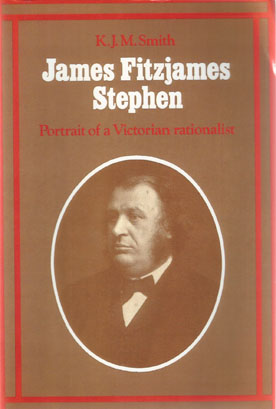
In this important study Dr Smith uses a wide range of primary materials to provide the first modern comprehensive examination of the work, writings and ideas of James Fitzjames Stephen.
Stephen's broad rationalist/utilitarian ethical and intellectual stance manifested itself most prominently in law and social and political philosophy. Stephen's turn of mind led him to perceive the substance of literature and religious orthodoxy as of complementary interest and relevance to the social and political mores of Victorian England, making him one of Dickens' and Cardinal Newman's most formidable and trenchant critics.
Dr Smith's account is the first to set Stephen's life and thought in its proper Victorian context, and marks a significant addition to the growing literature on the intellectual history of nineteenth-century England.